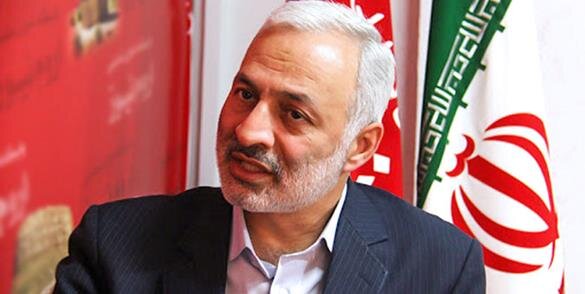Senior MP: Differences with U.S. on economic benefits, sanctions not resolved

TEHRAN— Head of the National Security and Foreign Policy Committee of the Iranian parliament has said that Iran and the United States have not reached an agreement on the economic benefits of the JCPOA for Iran during their recent talks in Doha.
Vahid Jalalzadeh made the remarks in an interview with the ICANA news agency published on Saturday.
Iran and the U.S. held indirect talks on Tuesday and Wednesday in Doha through European Union coordinator Enrique Mora. The talks took place soon after EU foreign policy chief Josep Borrell visited Tehran for talks with relevant Iranian officials.
Jalalzadeh went on to say that the negotiating partners almost agreed on concluding the talks to revive the JCPOA in Vienna in March as the two sides agreed on some details and implementing certain steps, yet the U.S. backtracked and therefore talks came to a 4-month halt.
“The U.S. backtracked on the promises it made to the European parties, China, Russia and Iran in the same negotiations in Vienna, unfortunately, it broke them and there was a break in these negotiations for about 4 months. And finally, Mr. Mora and Borrell maintained this connection in commuting and exchanging the messages and finally reached the conclusion to continue the negotiations in Doha, Qatar,” the legislator stated.
The MP said unfortunately Tehran and Washington could not reach agreement on two issues in Doha: “One is the issue of our economic benefits, and the other is the issue of the ‘red list of the sanctions’. In this regard, we reached a list with the Europeans and the Americans in Vienna, and we said that this list should be removed from the red list, but the Americans said that they will again add these people to the red list if anything comes up,” Jalalzadeh continued.
The MP added that the U.S. is turning its back on its promise regarding the red “list of sanctions,” noting that it doesn’t work that way.
“We keep negotiating and the U.S. could add these people to the red list under any pretext? No. It doesn’t work that way,” he underlined.
Iran does not seek ‘talks for talks’: MP
In an interview with IRNA news agency published on Saturday, Sara Falahi, head of the nuclear sub-committee of the National Security and Foreign Policy Committee of the parliament, said the United States and the European countries are not in the state of putting forth conditions for Iran.
Referring to the withdrawal of the U.S. from the JCPOA and Europe's inaction in fulfilling its obligations under the agreement, the legislator said, “Europe and the United States are not in a position to set conditions for the Islamic Republic of Iran.”
Fallahi added that a few days prior to the recent indirect talks between Iran and the U.S. in Doha, the International Atomic Energy Agency’s Board of Governors issued a censure resolution against Iran to make Iran “surrender”.
“Yet, the whole world saw that Iran not only did not surrender, but also cut off the beyond-Safeguards cameras. Hence, this shows Iran's strong and firm reaction to the Board and the countries on the other side of the negotiations,” she noted.
The legislator also pointed out that Iran will not back down from its positions, highlighting that Iran's diplomatic apparatus will continue the negotiation process intelligently.
She went on to specifically discuss the possibility of the attrition of negotiations, noting, “If the opposite parties continue to negotiate for the sake of negotiation and propose a new plan every time, this process will not be acceptable to us because the negotiations must come to a conclusion, otherwise there will be no reason to continue it.”
The head of the nuclear sub-committee of the parliament emphasized that Iran remained fully loyal to the JCPOA even one year after the U.S. abandoned the multilateral agreement and returned sanctions and imposed new ones under different pretexts.
Even since the U.S. quit and the Europeans failed to honor their commitments, Iran has not withdrawn from the agreement, she explained.
Now the Westerners are not in a position to set terms for Iran.
The MP also called the U.S. and the Israeli regime the cause of tension in the region and noted that the Islamic Revolution Guard Corps (IRGC) has always been and is the cause of internal and regional stability in Iran and abroad.
